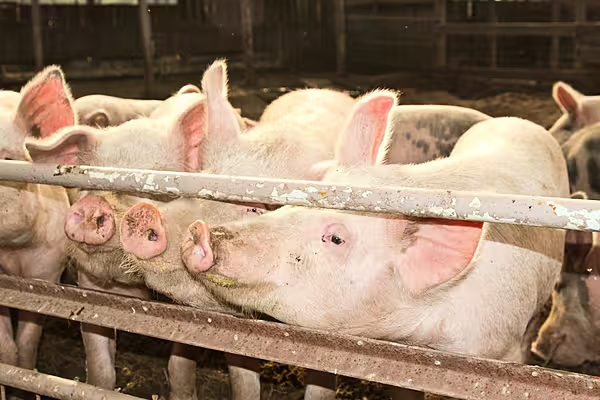China's WH Group expects pork exports from the United States to China to fall in the second half, chief financial officer Guo Lijun said on Tuesday, as the coronavirus pandemic hit volumes being handled at US processing plants and pushed up prices.
China's pork imports have surged in the first half, with arrivals from the United States especially high.
But high numbers of COVID-19 cases in US slaughter plants has impacted processing capacity and raised costs, including at WH Group-owned Smithfield Foods, the world's biggest pork processor.
Five of the firm's plants are still running below normal capacity, Guo told reporters after the company reported a 20.9% jump in first-half profits.
Impact On Slaughter Business
He added that the continuing spread of the virus would continue to impact the slaughter business and pressure hog prices.
Higher prices for packaged meats in China and Europe more than offset weak prices and sales volumes in the United States, where packaged meat revenues fell 9% to $3.4 billion and operating profit in the segment dropped 45.5%.
The group's first-half profit attributable to owners of the company, before biological fair value adjustments, totalled $550 million, compared with $463 million a year earlier, while revenues rose 12.2% to $12.5 billion.
Chinese pork prices, on average 137% higher than in the same period a year ago, supported higher selling prices for packaged meats in the company's domestic market, boosting revenues even as sales volumes declined 1.5%.
High Prices
The high prices, an ongoing result of the epidemic of African swine fever which devastated China's hog herd last year, also boosted fresh pork revenues in China by 56.9%, even as the number of hogs slaughtered plunged 62% to 3.27 million head.
"Remarkable sales growth" of imported pork helped plug the gap in supplies, the company said in a statement.
Though China's hog herd is recovering, ongoing outbreaks of African swine fever and rising grain costs risk keeping hog prices high, Guo said.











